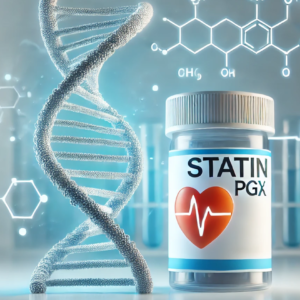DNA Test for Child-Parent Relationship
A DNA test for child-parent relationships, commonly known as a paternity test (father-child) or maternity test (mother-child), is a highly accurate scientific method to confirm biological kinship. These tests analyze Short Tandem Repeats (STRs)—unique genetic markers inherited from each parent. By comparing the child’s DNA with the potential parent’s, labs can either confirm or exclude biological relation with 100% certainty in exclusion cases. The process is simple, often using cheek swabs, but can also include blood samples or non-invasive prenatal paternity testing (NIPP) during pregnancy.
DNA parentage tests are the gold standard for verifying biological relationships due to their high accuracy (typically 99.9% or higher). Tests can be at-home for personal knowledge or legally admissible for court cases, child support, or immigration. Options include prenatal paternity tests, sibling DNA tests, and grandparent tests, ensuring flexibility for different needs.
1. Who Should Take the Child- Parent DNA Test?
-
Legal Purposes – Required for child support, custody battles, inheritance claims, or immigration cases.
-
Personal Confirmation – For peace of mind, adoption reunions, or suspected misattributed paternity.
-
Medical & Genetic Reasons – To assess inherited health risks or verify IVF/donor conception.
-
Prenatal Testing – Early paternity confirmation during pregnancy (NIPP test from 8 weeks).
2. Why Is This Test Important?
A paternity DNA test offers definitive proof of biological relationships, crucial for legal cases like child support, custody battles, and immigration. It also provides personal clarity for families, adoptees, or anyone seeking confirmation of parentage. Additionally, these genetic tests reveal valuable health insights, helping identify inherited medical conditions for better family healthcare planning.
Key Reasons for DNA Testing
- Legal Clarity & Court-Admissible Proof:
- Court-admissible evidence providing 100% accurate, legally binding results for child support cases, custody battles, inheritance disputes, and immigration petitions.
- Strict legal protocols following chain-of-custody procedures for family court requirements, social security claims, and visa/citizenship applications.
- Official documentation used for birth certificate amendments, establishing legal parentage, and government record updates.
- Government-approved DNA testing with nationwide recognition accepted in all US courts and legal proceedings.
- Personal Peace of Mind & Family Confirmation:
For those seeking absolute certainty about biological relationships, at-home paternity tests offer private, confidential DNA testing with lab-certified accuracy. These over-the-counter DNA test kits are ideal for:
-
Adoptees searching for birth parents
-
Couples confirming paternity privately
-
Blended families establishing biological connections
-
Individuals with uncertain paternity questions
With fast DNA results in 2-3 days, these non-legal paternity tests provide affordable, stress-free answers from the comfort of home.
-
- Medical Insights & Genetic Health Benefits:
-
Identifies Genetic Health Risks
Reveals inherited conditions like cystic fibrosis, sickle cell anemia, and BRCA gene mutations through genetic health screening -
Creates Family Medical Profiles
Builds accurate family health histories for proactive preventative healthcare planning -
Ensures IVF Accuracy
Verifies embryo parentage and prevents fertility clinic mix-ups with IVF DNA testing -
Reveals Ancestry Insights
Provides ethnicity estimates and genetic trait analysis through ancestry DNA testing -
Early Prenatal Testing
Non-invasive NIPP tests available from 8 weeks pregnant for early health risk assessment
-
3. Types of DNA Paternity Tests:
- “Peace of Mind” Tests (At-Home Kits): These peace of mind DNA tests provide personal confirmation of biological relationships but are not legally binding. Using simple cheek swabs, they offer fast, private results with high accuracy—ideal for curiosity, family reassurance, or preliminary answers. However, since samples are self-collected without witness verification, they cannot be used in court for child support, custody, or immigration cases. A perfect choice when you need quick, confidential answers without legal requirements
- IVF & Fertility DNA Testing: This specialized paternity confirmation test is designed for families who conceived through IVF, surrogacy, or donor programs. It verifies the biological connection between parents and child, ensuring there were no laboratory mix-ups with embryos, sperm, or egg samples during the fertility process. The test can be upgraded to a legal DNA test if court-admissible proof is needed for birth certificates or legal parentage. It’s particularly crucial for same-sex couples, surrogate births, and donor-conceived children to establish genetic relationships with absolute certainty.
-
Legal/Court-Admissible DNA Tests: These court-approved DNA tests are mandatory for child support cases, custody disputes, immigration petitions, and inheritance claims. Conducted under strict chain-of-custody protocols, samples are collected by an authorized neutral witness to ensure legal validity. The results are government-certified and legally binding, recognized by family courts, USCIS (U.S. Citizenship and Immigration Services), and Social Security Administration for official purposes.
4 . How does this work
While cheek swabs are the most common method, other options are available depending on the situation:
- Blood Samples: Used in some prenatal tests.
- Non-Invasive Prenatal Paternity (NIPP) Test: A significant advancement performed as early as 8 weeks into pregnancy using a blood sample from the pregnant mother, which contains cell-free fetal DNA.
- Invasive Prenatal Tests: Less common methods like amniocentesis or CVS, usually performed only when there are other medical reasons.







Reviews
There are no reviews yet.